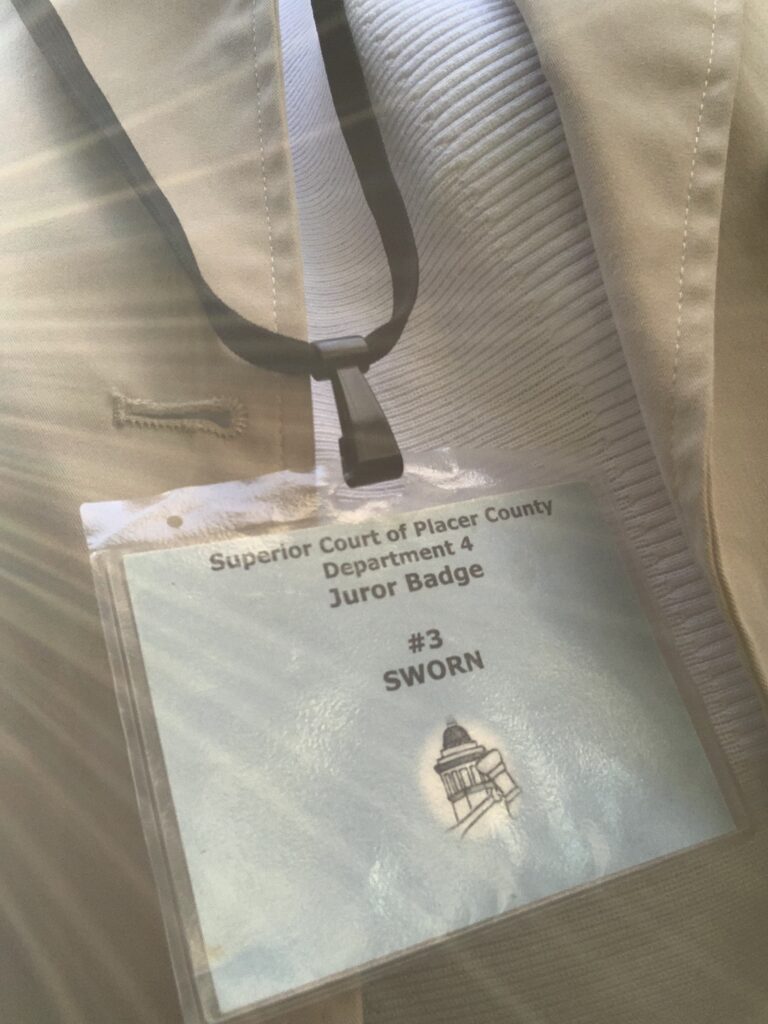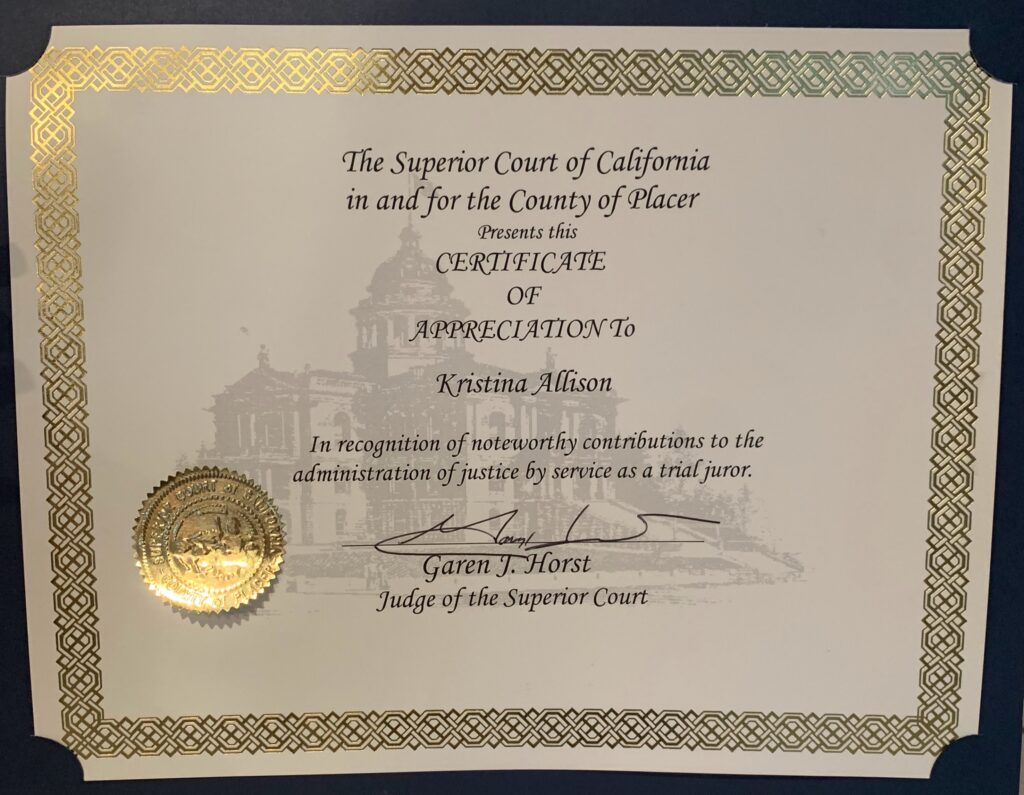Standing in the queue at the courthouse, I was so relieved there were so many people there. That’s a feeling I don’t often have: wanting to be surrounded by a large crowd. I figured the more people in the room the less likely I would be picked. Strangely, though, there was this part of me that knew, just knew it would be my turn. After 33 years of dodging, being excused, and deferring, I was going to be selected to serve on a jury.

As a fan of courtroom shows, real-life court cases, and true crime stories, I was definitely intrigued to be in this situation. Witnessing the judicial process in real time was exciting and educational. But what I was being asked to do was not easy. At one point during jury selection, the defense attorney asked me how I felt about serving. My reply was, “I am a learner so I’m excited to go through this process, but I feel horribly guilty and hope my team isn’t going to be mad at me.” The idea that I was abandoning my responsibilities, and asking others to pick up the slack while I got a “jury vacation” hit me hard.
Oh, I forgot to mention: this was a 4-week trial, with only Monday mornings and Wednesdays off. Brutally long.
I learned many things while serving on a jury. The first is that court attorneys talk too much. I mean way too much. Opening arguments went on for over 30 minutes from each side. If you are a student of Cognitive Load Theory or just a teacher who understands students, you know that the human brain cannot process new information for that long. Even as the trial progressed, I often zoned out, even nodded off, due to having no opportunities to process information. Keep in mind this was a highly technical trial with lots of tedious information. (There were literally carts full of binders as evidence). Luckily we were provided with paper and pens. I wrote over 15 pages of notes during the course of the trial, more than most of my college coursework. Of course, there may have been more doodles than actual information.
Another lesson I learned was the power of a collective group. The weight of deciding if someone’s life would be forever altered by criminal charges, jail time, and financial ruin is not an easy burden to hold. There were many nights I lay awake thinking of the seriousness of the task at hand. We were tasked with making sure there was no reasonable doubt. None. As a compassionate and empathetic person, it was not always easy to separate those feelings from facts. However, once we were able to deliberate and discuss as an entire jury, it was so comforting to know we were making a collective decision. I was lucky that we all saw the case the same way and easily came to a verdict.
I still feel horribly guilty for the time I missed at work. The stress of the responsibility of serving was also no joke. By the end of the four weeks, I was emotionally drained and happy to get back to normal. I am thankful for the learning and growth of the experience, but I certainly would never want to do it again during the school year.
If you want to read about the case, this article is a short summary. If you want to know more, hit me up and we can discuss it over a beverage.

